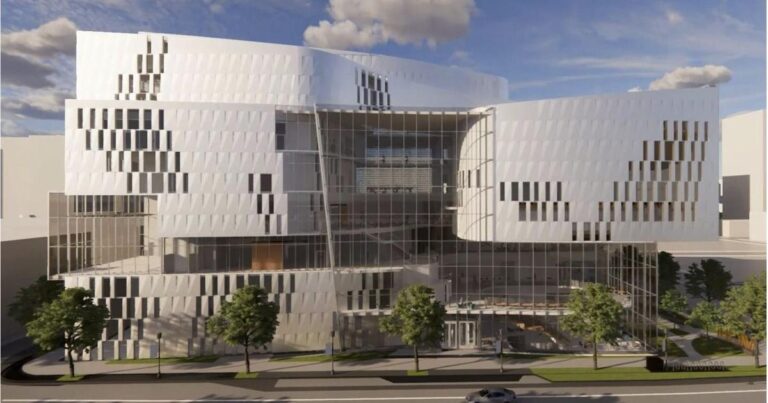
As part of the state budget, the General Assembly has approved construction of a $181 million Virginia Commonwealth University arts and innovation building at the intersection of West Broad and North Belvidere streets. It will be the largest state-funded capital project in the university’s history.
Overall, legislators have agreed to award VCU more than $30 million in new funding, which is as much as VCU leaders hoped for. The university also will receive money to rebuild its data infrastructure, to start a cloud computing center and to offer more financial assistance to low-income students. Gov. Glenn Youngkin has seven days to make amendments to the state budget.
The total figure is good news for VCU, which faces budget cuts this summer. The $30 million in new funding will limit the number of cuts necessary.
“We got the best-case scenario and then some,” said Matt Conrad, the university’s vice president for government and external relations.
The budget bill closing out the fiscal year that ends June 30 includes $1.8 million in planning funds for the arts center on top of $5 million in the budget for fiscal 2021.
People are also reading…
The VCU School of the Arts is one of the nation’s highest-ranked art programs. But the school believes its art buildings are outdated and inadequate. The new arts and innovation building would consolidate work done in 15 other facilities.
Inside, VCU plans to build classroom space, performance venues and room for partnerships between the arts and other departments in the university. The building will “provide a launch pad for critical digital and creative economy initiatives on campus and in the city,” VCU said.
The university hasn’t set a timeline for construction, but it will likely take two to three years to build, Conrad said.
Located at the southeast corner of Broad and Belvidere, across from the Institute for Contemporary Art at VCU, its plot is vacant and already controlled by the school.
Its cost will be covered by the state, which generally pays for the construction of educational buildings on college campuses. Universities cover the cost of building dorms, student activity buildings and athletics facilities.
The arts and innovation building is just one piece of more than $1 billion in planned construction over six years at VCU, including an athletics village, student commons and a residential facility.
The $30 million in new funds VCU is due to receive will offset most of the $54 million the college is facing in new expenses, leaving VCU with a $14 million deficit. The university will make cuts this summer in order to start the new fiscal year with a balanced budget.
The lower $14 million deficit represents a sigh of relief for administrators, who weren’t sure how much funding they would receive from the state. The budget gap could have been as large as $22 million.
“It’s hard to be anything but grateful,” Conrad said.
VCU also gets $15 million for need-based financial aid. As the cost of college has gone up in the past decade, VCU has continually increased the amount of aid it offers.
Altogether, VCU will receive about $225 million in educational funds this year, which make up about a third of the university’s general budget. The other two-thirds is mostly covered by tuition and fees.
In addition to its education funding, VCU will receive $23 million to rebuilding its technology infrastructure – the servers that connect the university to the internet, its phone lines and internet security.
VCU’s servers are currently housed in the Pocahontas building, which the state plans to demolish. VCU will build a new data center on West Broad Street, but because it can’t turn the servers off and move them to a new building, the university has to build a redundant system.
VCU’s Massey Cancer Center will get $25 million. Last week, Massey applied for comprehensive status, the highest designation offered by the National Cancer Institute.
With an additional $7 million in funding, VCU will establish the Commonwealth Center for Cloud Computing, or “C4.”
VCU convened a workgroup last year with other colleges, technology companies and programs in other states.
There’s an urgent need to expand advanced computing and networks in order to attract economic development to the state, the university said.
Though VCU will lead the enterprise, it will involve numerous colleges throughout the state and will help support data science and artificial intelligence initiatives.
A university-led data science workforce would help attract tech companies to Virginia, the college said.